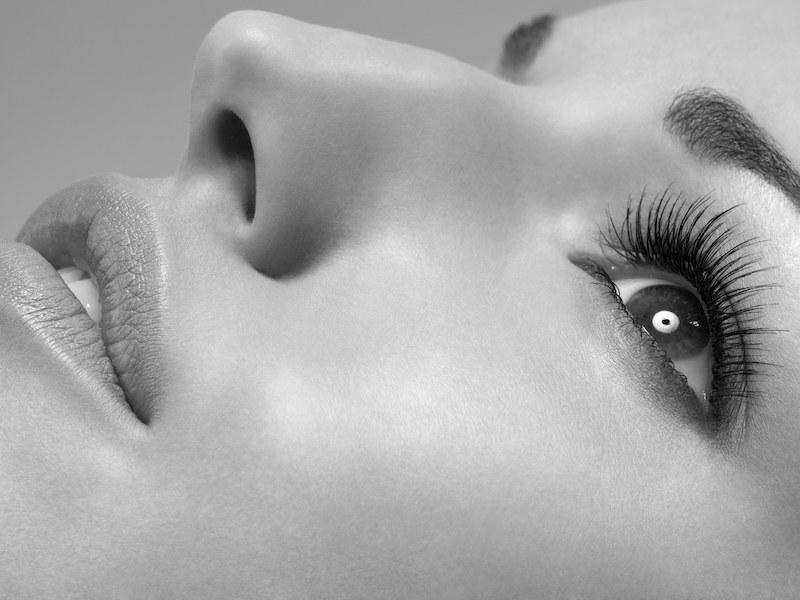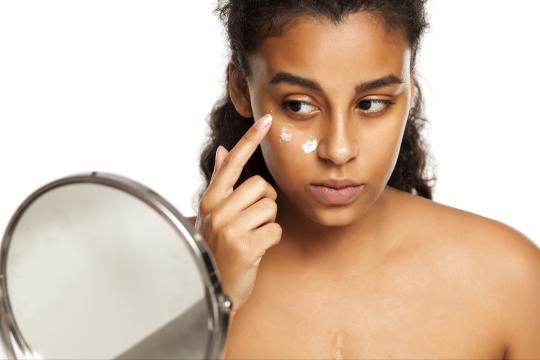Get up. Brush your teeth. Wash your face. What could go wrong?
Apparently, a lot. ‘Cause it seems too many of us are doing it wrong. There’s no shortage of health and beauty mags, blogs, vlogs, morning shows, etc… all pointing to the same simple observation that the way in which we’re doing something so basic could be what’s actually causing our skin woes.
Instead of dwelling on that harsh reality, let’s move instead toward solutions. Solutions dressed as a back to basics tutorial on how exactly we should be washing our delicate facial dermis and a few not-to-do’s thrown in for good measure.
Wash your hands.
Since this little number has been drilled into us since potty training, forgive us the ensuing snark. But it seems the obvious idea of washing ones own paws before touching any portion of your facial zone has been lost on some of us. For clarity: Do not place your filthy, unwashed mitts on your face. Not only is this gross, but it can lead to skin irritation and acne. Dousing your paws with cleanser and assuming that will accomplish a multitasking hands/face wash is wrong, and will only serve to apply a sudsy concoction of bacteria and germs straight to your pores—who will unknowingly embrace the disgustingness with open arms. Why open arms, you ask? Well, you’ll have opened the poor little things up with the too-hot water you’ve been using to lather up and rinse with. Which brings us to our next point of face-washing contention:
Water temperature.
Yes, water temperature maters. Washing your face with water that is too hot (or even too cold) can damage your skin and create more inflammation and irritation. Relying on lukewarm water to cleanse and rinse is the best way to wash without harming your skin.
Avoid harsh products.
The American Academy of Dermatology recommends using a gentle, non-abrasive cleanser that does not contain alcohol. Using no more than a dime-sized dab of cleanser will help you avoid any irritation that can be caused by most product's surfactants (foaming agents, emulsifiers, detergents). Your plastic surgeon or dermatologist are terrific resources of information about your skin and any skin conditions or intolerances you may have, so a check in with them will help if you're uncertain about which skincare products to choose.
Remove your makeup before you wash.
This might seem redundant, but trust us, it’s not. In order to not simply smear makeup and makeup residue all over your face while you’re washing, it’s best to actually remove your makeup first with a makeup wipe, particularly when it comes to removing stubborn mascara, liner, heavy foundations, and lipstains.
Avoid excess scrubbing.
Exfoliation is one thing, but overzealous scrubbing while you wash your face is a big no-no. Too much rub-a-dub-dubbing in the face-washing department can actually cause damage to your skin. A light touch with your fingertips and a gentle cleanser are more than sufficient to get your face clean.
And just FYI: When it comes to actual exfoliation, it’s all about moderation. If you’re exfoliating at home, then be sure to use a gentle product and not to much elbow grease. Over-exfoliating can lead to chronic skin irritation and accelerated aging—you know, the opposite of what you’re actually exfoliating for. Or, you know, leave the exfoliation to the professionals when you see your doctor or skincare professional for a microdermabrasion treatment.
For heaven’s sake, use a clean towel.
Remember that thing about washing your hands before you wash your face because your hands are filthy cess pools of nasty bacteria? Yeah, your dirty towel is too. Drying your face is the same delicate business that washing your face is, no scrubbing and use a soft clean towel. Simply pat your face dry with a soft clean towel. One more time for those in the back: soft. clean. towel.
Listen, we all gotta wash our faces, so you’re going to want to do it right:
- Wash your hands.
- Use lukewarm water and use minimal amounts of a gentle cleanser.
- Remove makeup.
- Refrain from overzealous scrubbing.
- Use a soft clean towel and pat dry.
And finally, if you have sensitive skin or you're dealing with sensitive skin, a skin condition or other irritation, you should plan a visit to your doctor before you commit to any skincare routine. #yourwelcome







